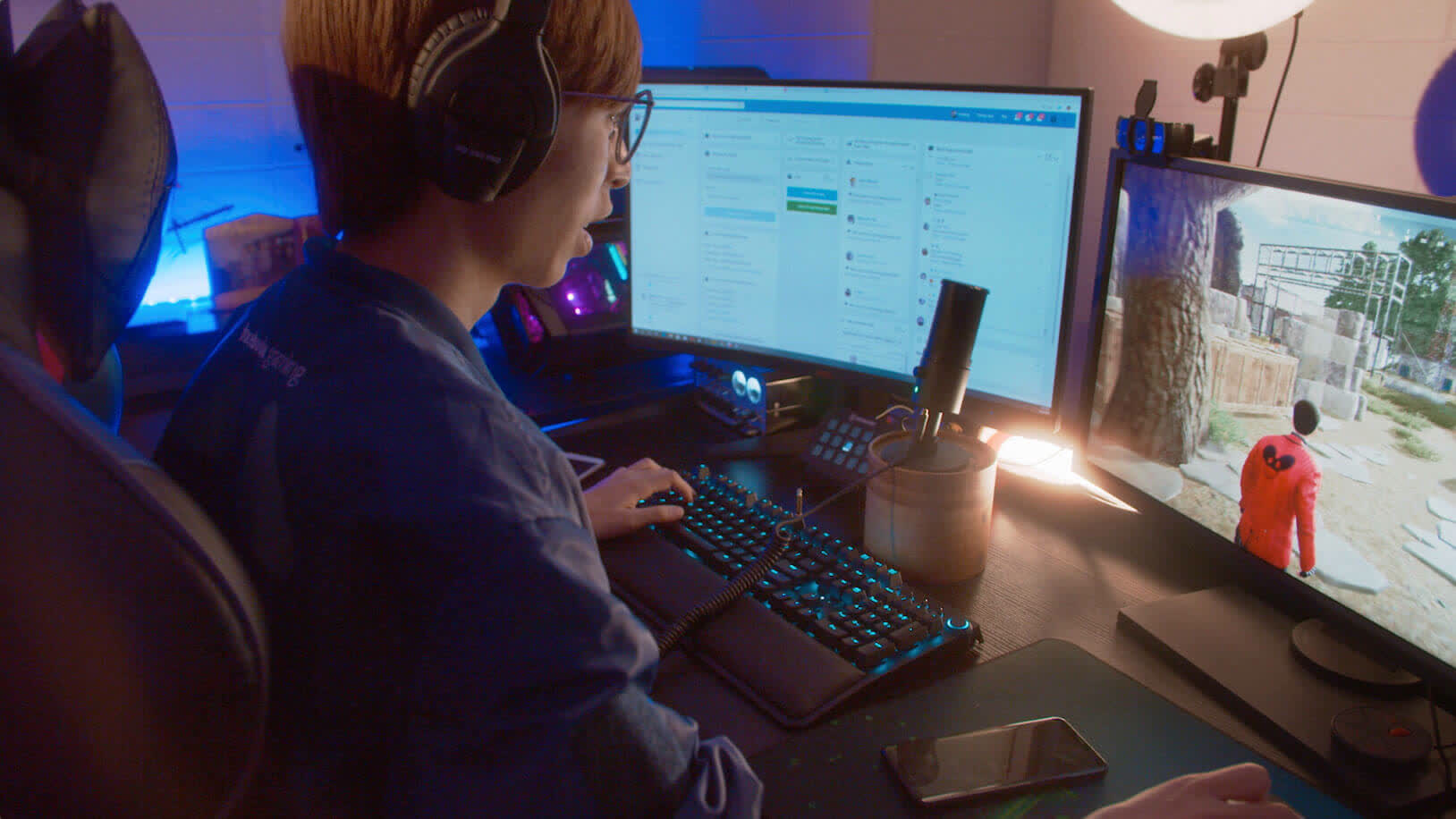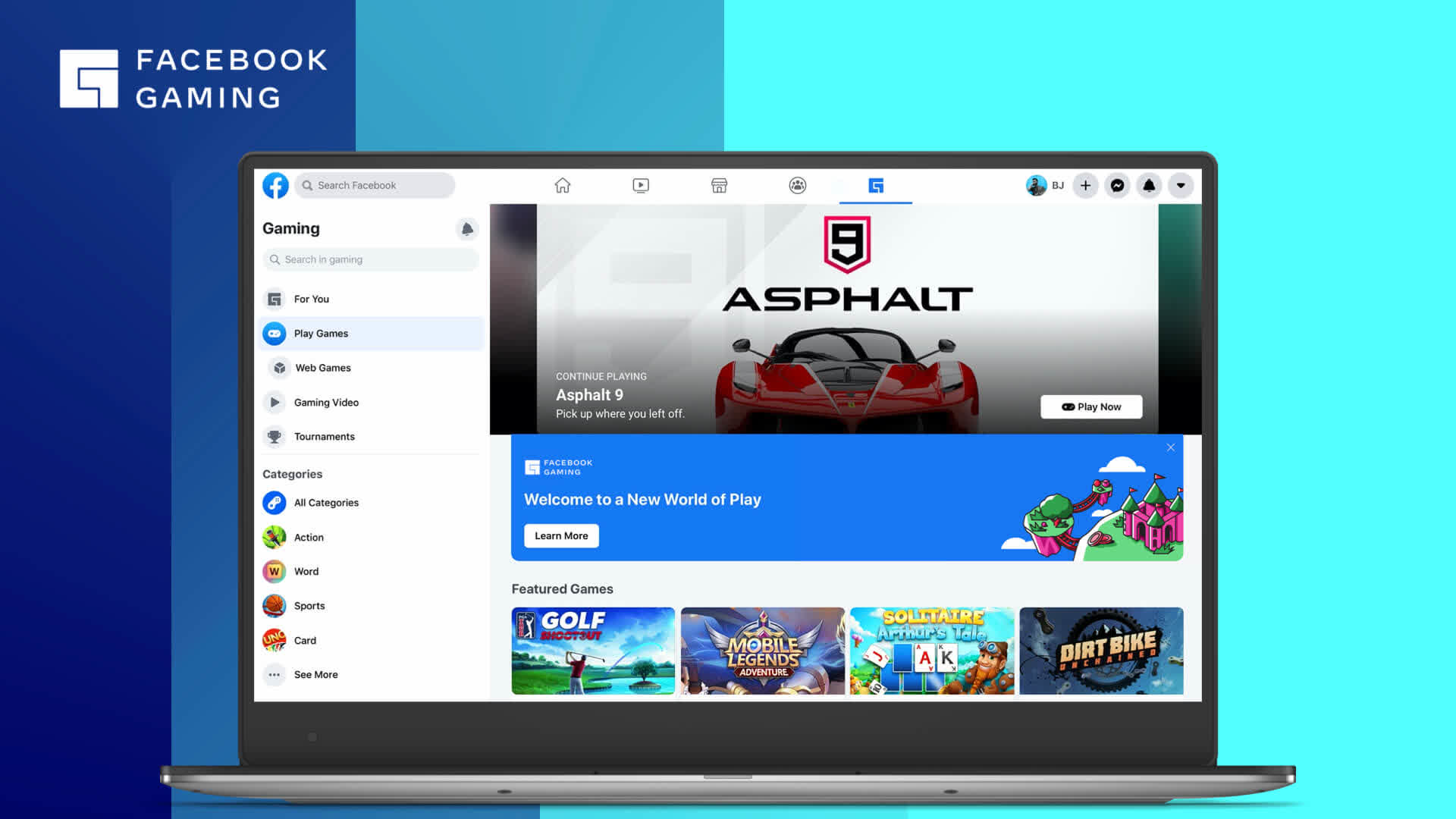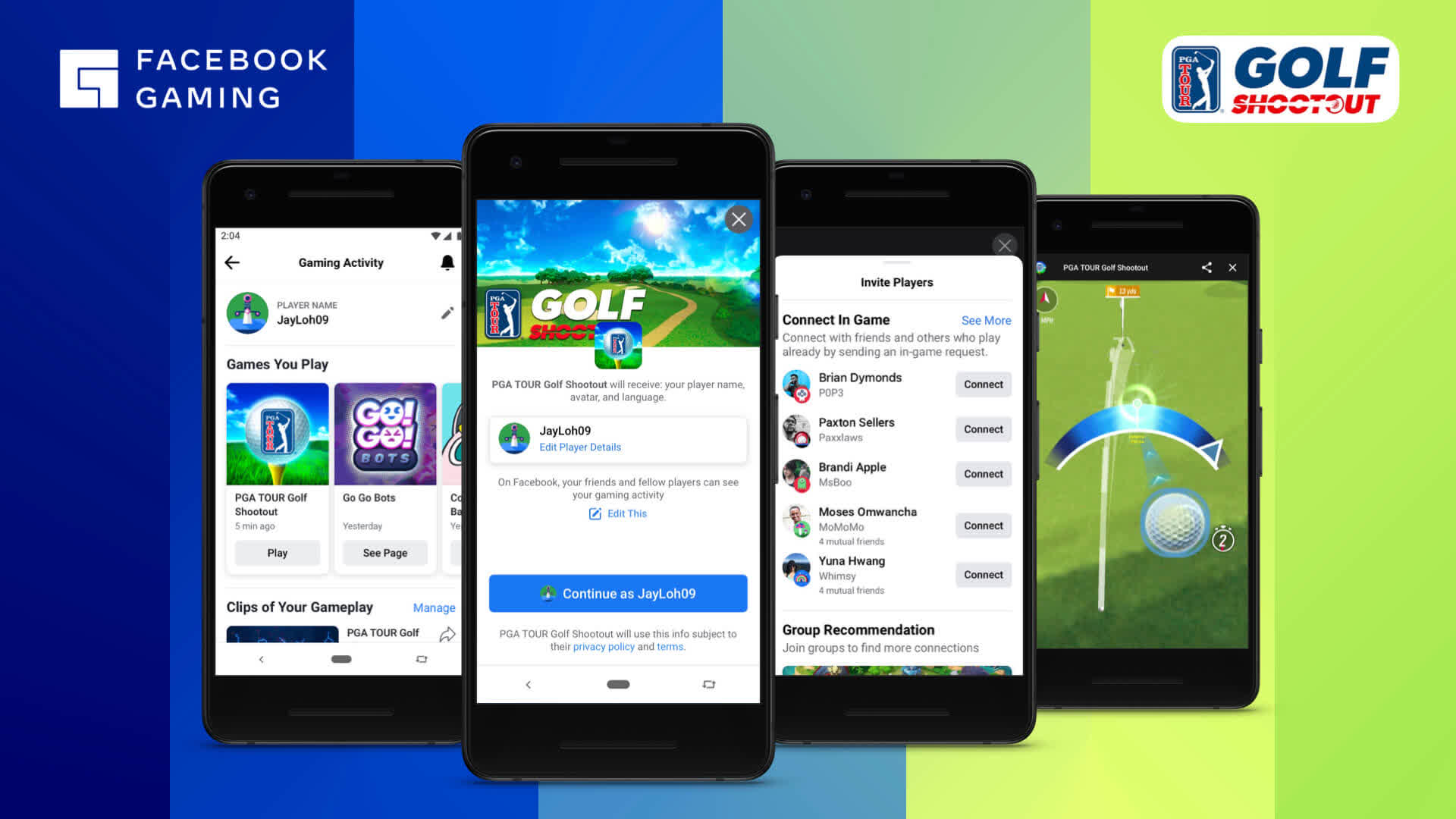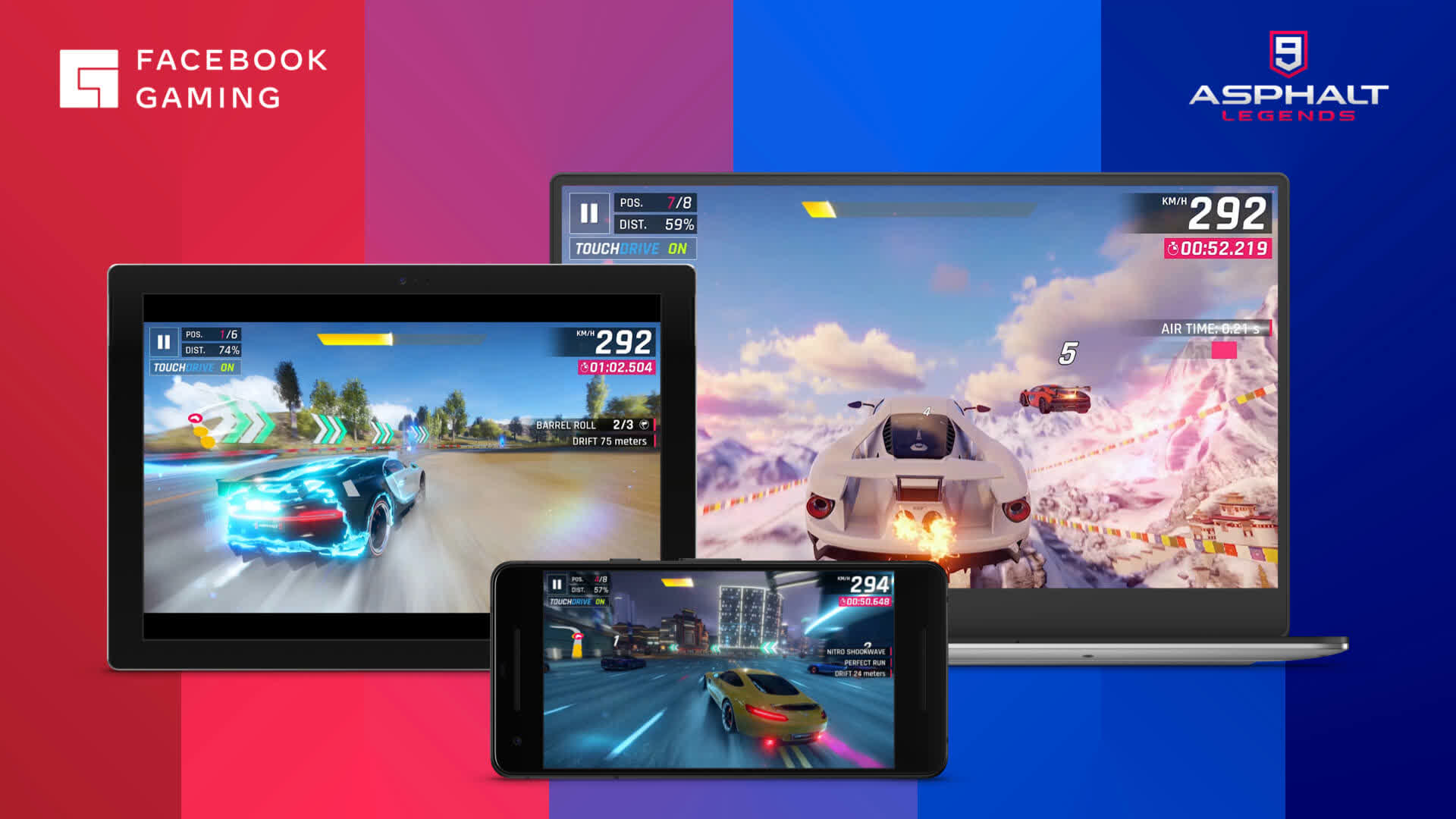Editor's take: Facebook is diving into the world of cloud gaming, but has chosen to approach it from a different perspective. Where Microsoft, Google, Nvidia and others try to provide the quality of console or PC gaming through their data centers, Facebook is simply placing free-to-play games at the fingertips of users dwelling on its social network.
Facebook Gaming is the latest entrant into the cloud gaming craze with a service that does things in a different way when compared to Nvidia's GeForce Now, Microsoft's xCloud, Google's Stadia, and Amazon's Luna – to name a few.
The social giant wants to become one of the heavyweights of cloud games, but right off the bat it had to admit that launching on Apple's iOS was impossible due to the App Store policies, at least for now. This is why developers are rallying to fight for a more open App Store that won't be used as a weapon against competitors.
That leaves Android and the open web, where Facebook will now make its transition away from staples like FarmVille to build a platform for free-to-play games, particularly the "latency-tolerant" kind. This is where Facebook Gaming differs greatly from its competition, as the company isn't promising things like 4K resolution, HDR, or 60 frames per second. Nor is it asking people to buy a controller or any other piece of additional hardware in order to play.

The first set of six games that are available includes Asphalt 9: Legends, Mobile Legends: Adventure, and 2K's WWE SuperCard. These are touchscreen games and they are limited to an US audience, but the company is planning to expand to other regions and include more games in the near future.
The new experience will live inside a dedicated Gaming tab, and developers will be able to use cloud playable ads on the news feed Android and iOS to promote their games.
Facebook wants its users to be able jump in and out of games just like they've been able to do with Instant games, and their progression will be tied to their Facebook login and carry over to the standalone games, should they ever decide to play them outside of the social network. Of course, with mobile games this should be easy, but the company says PC games are also coming to its cloud gaming service in the future.
It will be interesting to see how that will be implemented, given the fact that some people don't appreciate having to use a Facebook login for everything.
According to Facebook VP of Play Jason Rubin, more than 380 million people play games on the social platform every month, and the company sees a great opportunity to leverage that existing user base. And by taking baby steps with its cloud gaming ambitions, the company should be able to avoid the pitfalls encountered by the likes of Stadia, a service that overpromised and may have underdelivered for both its users and the developers that have jumped on board.
In a statement, Rubin took a subtle dig at other cloud gaming platforms – "we believe in the long-term future of cloud gaming, but we aren't going to try to wow you with the wonders of our data centers, compression algorithms, resolutions or frames per second. Cloud game streaming for the masses still has a way to go, and it's important to embrace both the advantages and the reality of the technology rather than try to sell you on a promise of where it'll be in the future."

Rubin explains that developers will be able to choose how they monetize their games – either through in-game purchases, ads, or a combination of both. On the web, Facebook will take a 30 percent cut of the revenue from microtransactions, while on Android that same cut will go to Google. As for iOS, Rubin says "we would be willing to give the 30% to Apple, that is not what's holding us up. What's holding us up is we're not allowed to do the things that we're doing on Android."
There are a few advantages to Facebook's approach. First, there's little friction and players aren't required to purchase their games again like they do on Stadia. Second, the business model is simple, and it's the same one Facebook has been using, with a focus on driving advertising revenue. Rubin says the service won't have any exclusives, as it wants to allow developers to naturally come up with creative ways to add unique value to the social platform.

The company doesn't exclude the idea of "made for Facebook features and games," but those won't happen until the new cloud gaming service reaches critical mass. Perhaps the most important advantage is that Facebook is taking the slow approach, by not overselling on the technical side of things and by planning a gradual rollout of games and game genres.
As of writing, Nvidia's GeForce Now has over 4 million registered users, and the company is giving users a free year to those buying RTX 3000 series graphics cards. PlayStation Now had over 2.2 million paid subscribers as of April, while Microsoft and Google have yet to disclose subscriber numbers for their cloud gaming services.
Almost one year in, Google Stadia has been described as a lonely place, owing to the limited library and the requirement to re-purchase titles owned on other platforms. Microsoft's xCloud has a larger selection of games, and it's included for free as part of Xbox Game Pass Ultimate, which should theoretically boost its adoption numbers. Facebook doesn't want to directly compete with these heavyweights, but its strategy may prove more successful in growing a large user base.

